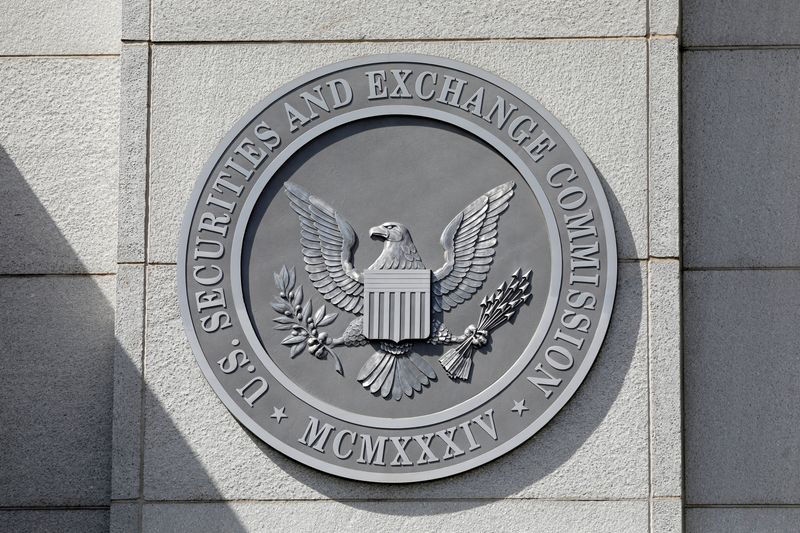By Katanga Johnson
WASHINGTON (Reuters) - The U.S. Securities and Exchange Commission (SEC) on Wednesday proposed tightening a legal safe-harbor that allows corporate insiders to trade in a company's shares, and other rules to improve the resilience of money market funds.
The agency also unveiled measures to increase transparency around share buybacks and the complex derivatives at the center of New York-based Archegos Capital Management's meltdown earlier this year.
The slew of long-awaited changes mark a milestone for SEC Chair Gary Gensler who has outlined an ambitious agenda to crack down on corporate wrongdoing, improve corporate governance and address inequities in the markets.
The changes, which are subject to public consultation, will affect a swathe of corporate America, from publicly traded companies and their top executives, to banking groups and asset managers including BlackRock (NYSE:BLK), Vanguard, Fidelity and Goldman Sachs (NYSE:GS).
The proposed tightening of "10b5-1" corporate trading plans in particular was pushed by progressives who have long criticized the rules, saying they allow insiders to game the system and reap windfalls at the expense of ordinary investors.
The plans allow insiders to trade in a company's stock on a pre-determined date, providing legal protection against potential allegations of insider trading. Critics say it is far too easy to adopt, amend or cancel trades with little scrutiny.
Wednesday's proposal requires executives to disclose those plans and any modifications. For executives, the SEC also wants a "cooling-off" period of 120 days between the adoption of a plan and the first trade. For companies trading in their own securities, the cooling-off period would be 30 days.
The proposal would also bar insiders from having several overlapping plans, which Gensler said could allow them to cherry-pick favorable plans as they please.
While critics have long said the plans are flawed, trades by executives at Pfizer (NYSE:PFE) and Moderna (NASDAQ:MRNA) during the COVID-19 vaccine development process renewed scrutiny of such plans and highlighted transparency issues, said Daniel Taylor a professor with expertise on issues related to financial disclosures at the University of Pennsylvania's Wharton School.
"There is mounting evidence that these plans are, at best, being used in a manner in which they were not intended, and at worst, being abused to enrich corporate insiders," Taylor said.
The SEC also said it wants companies to disclose share buybacks one business day after execution, in contrast to the current quarterly disclosure rule.
Investor groups welcomed the changes.
"Cleaning up practices that can be a pathway for abusive trades will help restore trust in our markets,” said Amy Borrus, head of the Council for Institutional Investors.
The SEC also detailed changes to address systemic risks in the $5 trillion U.S. money market fund sector, which was bailed out for a second time during the 2020 pandemic-induced turmoil.
Critics say the sector enjoys an implicit government guarantee.
SEC proposed new liquidity requirements, scrapping redemption fees and restrictions, and adjusting funds' value in line with dealing activity, a process known as "swing pricing."
While the funds industry has conceded changes are necessary, corporate groups may oppose some of the trading disclosures.
"Some of this appears to be overkill," said Howard Berkenblit, partner at law firm Sullivan and Worcester. "A long cooling-off period and limits on the number of plans will be less popular and could cause a decrease in use of these plans."
The SEC also outlined a plan to stamp out misconduct via security-based swaps.
Such derivatives were at the center of the Archegos meltdown, which left Wall Street banks on the other side of the family office's trades with $10 billion in losses.
Under the new rule, investors will have to publicly disclose such trades.
